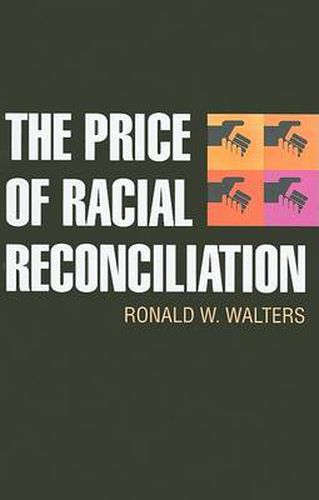Readings Newsletter
Become a Readings Member to make your shopping experience even easier.
Sign in or sign up for free!
You’re not far away from qualifying for FREE standard shipping within Australia
You’ve qualified for FREE standard shipping within Australia
The cart is loading…






This book presents the conceptual difficulties involved in the project of racial reconciliation by a comparative analysis of South African Truth and Reconciliation and the demand for reparations in the United States. The issue of reparations in America provokes a lot of interest, but the public debate usually occurs at the level of historical accounting: ‘Who owes what for slavery?’ This book attempts to get past that question to address racial restitution within the framework of larger societal interests. For example, the answer to the ‘why reparations?’ question is more than the moral of payment for an injustice done in the past. Ronald Walters suggests that, insofar as the impact of slavery is still very much with us today and has been reinforced by forms of post-slavery oppression, the objective of racial harmony will be disrupted unless it is recognized with the solemnity and amelioration it deserves. The author concludes that the grand narrative of black oppression in the United States - which contains the past and present summary of the black experience - prevents racial reconciliation as long as some substantial form of racial restitution is not seriously considered. This is ‘the price’ of reconciliation.
$9.00 standard shipping within Australia
FREE standard shipping within Australia for orders over $100.00
Express & International shipping calculated at checkout
This book presents the conceptual difficulties involved in the project of racial reconciliation by a comparative analysis of South African Truth and Reconciliation and the demand for reparations in the United States. The issue of reparations in America provokes a lot of interest, but the public debate usually occurs at the level of historical accounting: ‘Who owes what for slavery?’ This book attempts to get past that question to address racial restitution within the framework of larger societal interests. For example, the answer to the ‘why reparations?’ question is more than the moral of payment for an injustice done in the past. Ronald Walters suggests that, insofar as the impact of slavery is still very much with us today and has been reinforced by forms of post-slavery oppression, the objective of racial harmony will be disrupted unless it is recognized with the solemnity and amelioration it deserves. The author concludes that the grand narrative of black oppression in the United States - which contains the past and present summary of the black experience - prevents racial reconciliation as long as some substantial form of racial restitution is not seriously considered. This is ‘the price’ of reconciliation.